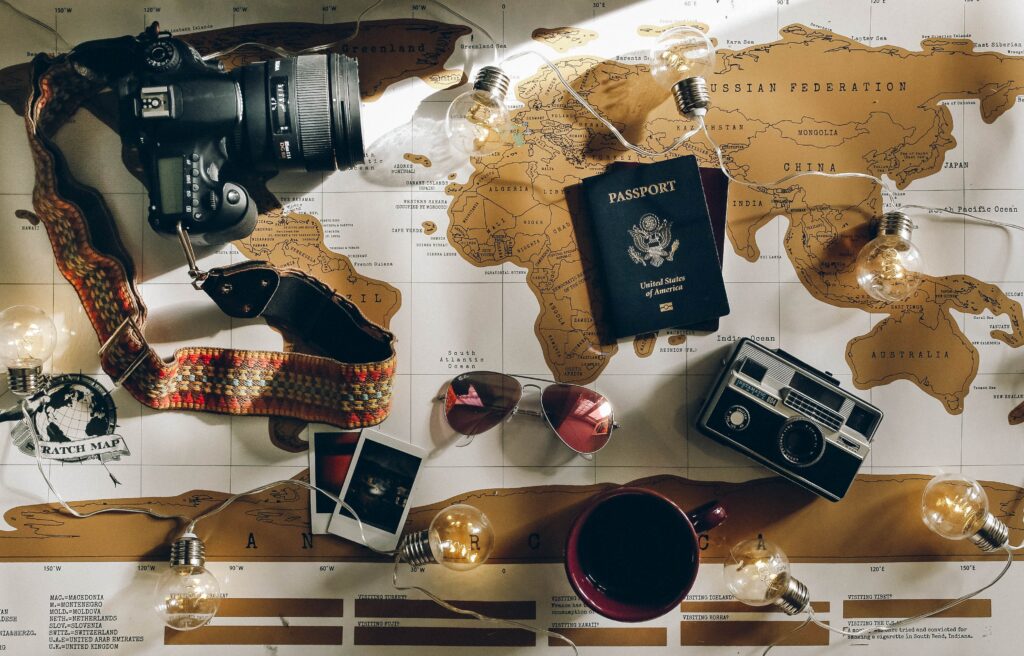9 Things You Should Know Before You Move to Another Country
After living several years outside of the U.S. with her wife, lesbian expat Anondra “Kat” Williams offers good advice and tips to LGBTQ+ folx considering a move to another country.
Who hasn’t dreamed about living abroad? We have, and as a matter of fact, we did it! My wife Amber and I created Wandering Soup and our YouTube channel to help guide people who aspire to live in a different country for an extended period of time. We’ve traveled the globe and lived in several interesting places, including Merida, Mexico, where we’ve lived for almost a year. It’s been great, and we definitely recommend it. But if I’m being honest, we could have prepared better for our international move… way better.
There are key steps you should consider before you take a major leap to live in a different country. Here’s my list of nine tips to keep in mind when planning your move to another country.
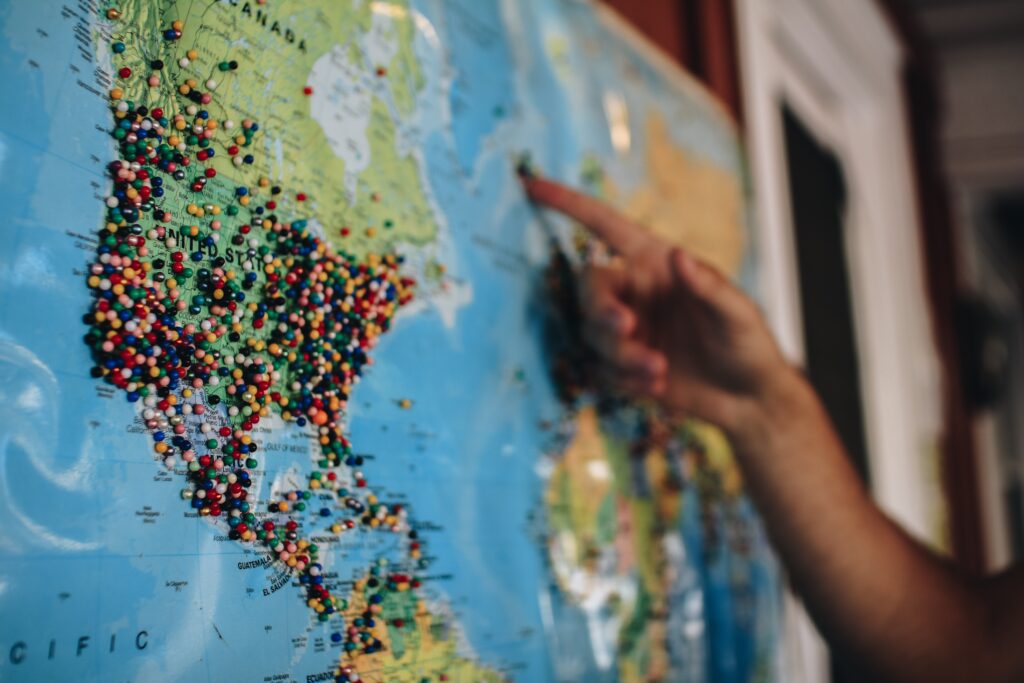
(Photo Credit: Kelsey Knight on Unsplash)
1. Do Extensive Research on Where You Want to Live
Some travelers fly by the seat of their pants but some of us don’t. Do your research to ensure that this move is the best move for you and that where you’re moving is where you really want to be. Start by reading articles and blogs that offer tips and advice about the destination you want to live. Also, watch vlogs that provide a visual aid to give you some idea of what your new “host” country or city may be like to live. Research housing expenses, the day-to-day cost of living, internet accessibility, crime rates, and of course culinary options. These are the essentials that will impact your life abroad, but it’s also a way to gauge your priorities and personal necessities that you can’t live without.
Pro Tip: YouTube videos, blogs or even pictures will never compare to the real experience. Don’t focus too much attention on personal accounts. For example, a video travelogue is only a snapshot in time. Perceptions and locations change. Learn to be flexible and go with the flow while recognizing that’s what in a video today, may not be your reality tomorrow.
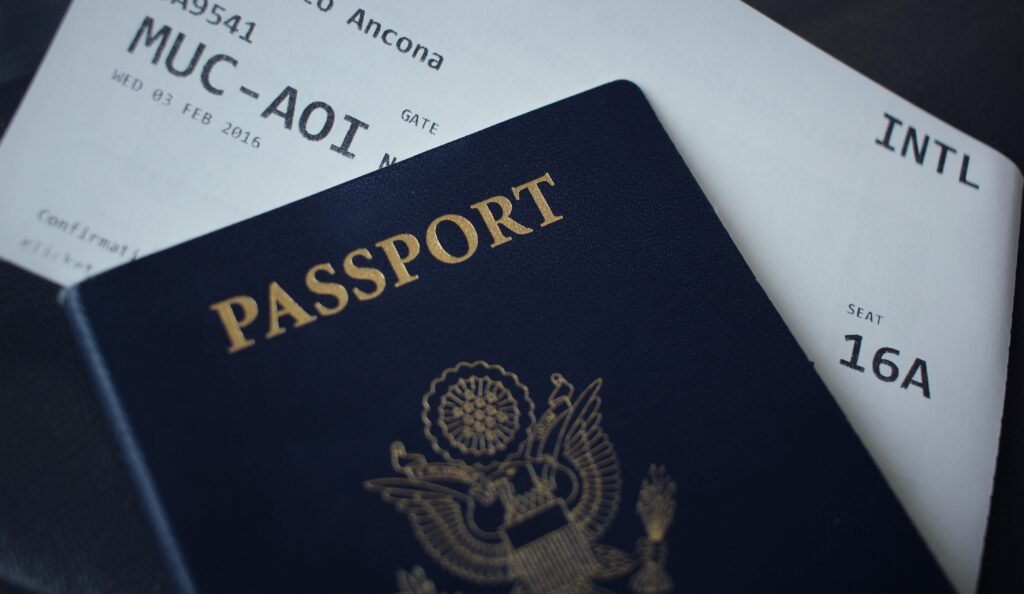
(Photo Credit: Nicole Geri on Unsplash)
2. Make it Legit: Passport, Travel Visa, and Bank Accounts
Make sure you have a valid passport. That means you should apply for one if you don’t have one or renew your existing passport if necessary, so you don’t run into any legal issues. Also, research the visa options available to you for the country under consideration. For example, some countries offer a three- to six-month tourist visa or other travel visas for longer stays.
We looked at two options when we started our slow travel through Southeast Asia. We looked at countries that allowed a 90-day stay for free and we looked at countries that offered longer stays at a cost that was affordable to us. If your goal is to relocate permanently, then the visa options and rules will vary, and they may include income or even language requirements.
Also, focus on the basics such as your bank accounts. Do some legwork to find out if your existing debit and or credit cards will work in your new country or find alternatives if they don’t. Don’t stress about opening up a bank account before you arrive in a new country. You may not be able to open an account. It depends on the visa issued to you when you first arrive, especially if you arrive on a tourist visa, which may be a case where it may not be permitted.
It may also be extremely helpful to sign up for a mailbox or postal service to open your mail and possibly scan it for you while you are away. It ensures that you won’t miss anything important.
Pro Tip: Tell your bank once, twice, three times (a lady or sir) that you are leaving the country. You don’t want to have your card deactivated due to suspected fraud the first time your card is swiped or charged while traveling abroad. Some banks allow you to provide your travel updates to prevent fraud alerts or an unexpected hold on your account.

(Photo Credit: Igal Ness on Unsplash)
3. Determine Your Stream(s) of Income While Abroad
When seeking employment abroad you need to research market needs, visa requirements, language skills demand, and possibly other factors that your host country requires. For instance for employment in Mexico, you will need not only a temporary residency visa but also a work permit. You have to apply for both. Your thorough research will tell you how and if you can gain employment in a new country along with what the typical cost of living may be and if a specific salary in a locale will cover your needs.
Don’t forget your taxes! In some instances, you may have to file and or pay taxes in the country you reside and in the country you have left.
Pro Tip: If you are retired or receiving a monthly stipend, you should research retirement visa options in-depth. In some cases, you may not have enough income to retire and receive a residency visa for the country you plan to call home for a while.
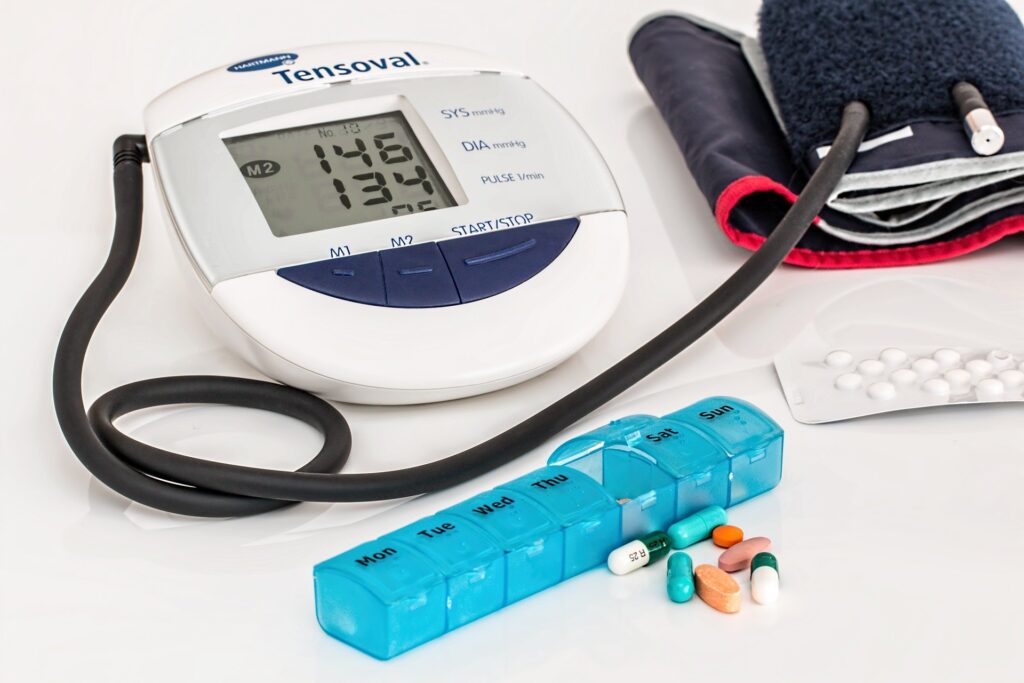
(Photo Credit: Igal Ness on Unsplash)
4. Make Sure Your Existing Medical Plan Covers You Abroad or Find Local Medical Care
Contact your current medical care provider to see if they cover international travel. Find out if and how you can enroll in medical care plans provided by local insurance companies or government-run healthcare organizations in your chosen country. You should also make sure you’ll be able to receive any and all prescribed medications after you move, and if not, look into other options.
Pro Tip: Most travel insurance policies require you to pay upfront for your medical expenses. You have to file a claim for reimbursement afterward. A medical savings plan may prove to be a helpful route when unexpected medical emergencies arise. Safety Wing is utilized by many but again, they require you to pay upfront for your medical expenses.

(Photo Credit: AltumCode on Unsplash)
5. Compare Prices to Save Money on Must-Have Electronics
When comparing the U.S. to other countries, the U.S. generally has electronics at lower prices and more options, too. Consider upgrading your old laptop before you leave the U.S. If the price is right, all your electronics – including tablets, cell phones, and gaming systems – should be replaced before you go. With electronics purchased in the U.S., you should also buy a few travel adapters to make sure you can charge your electronics abroad when necessary.
Pro Tip: Make sure your cell phone is unlocked and double sim capable. An unlocked phone allows you to get service with any carrier on a compatible network. If your cell phone is locked, you will not be able to transfer service to a local carrier or provider.

(Photo Credit: Jared Rice on Unsplash)
6. Relax, Relate, and Release Your Travel Jitters
First, don’t overthink or overanalyze your move so much that you become anxious and decide not to move at all. Relax, relate, and release! Take a breath from all the research and dedicate no more than one or two days per week to avoid information overload.
Pro Tip: You may have physical reactions, such as nausea, prior to moving abroad. That’s normal. It’s a major life change and it can be stressful immersing yourself in an unfamiliar culture. Before you move, you should consider making connections with locals in your host country to help you ease into your new life. You should also consider connecting with a mental health provider (online or in-person) to help you through the growing pains that come along with this big life decision.
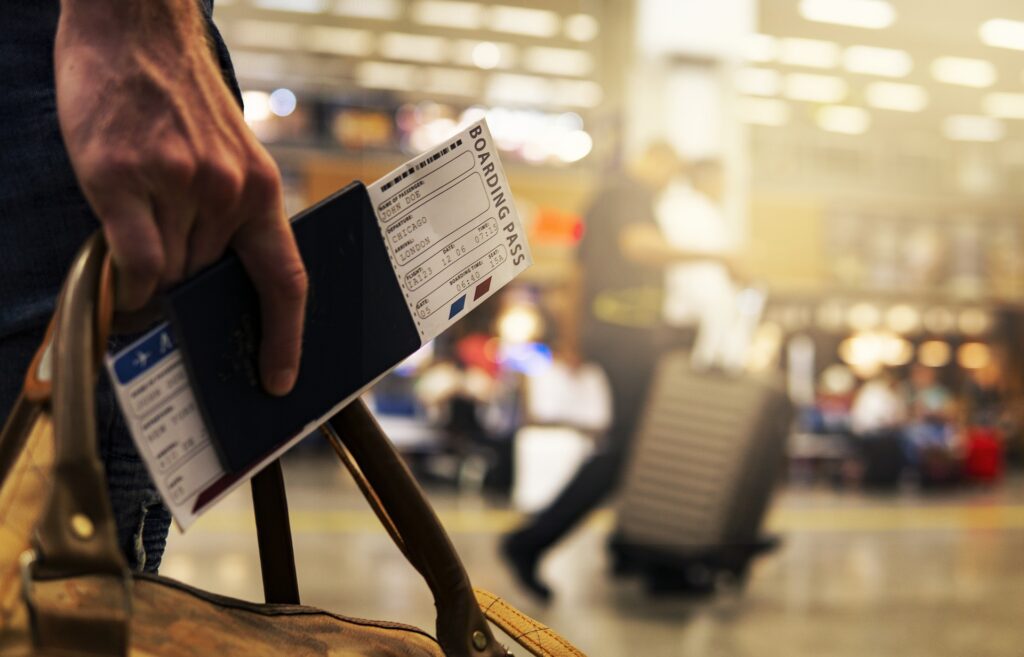
(Photo Credit: Joshua Woroniecki from Pixabay)
7. Buy a Ticket to Make the Move Real
It was truly a done deal when we purchased our airplane tickets. It gave us a firm date for when things we needed to finalize or complete. It also gave us a new dose of energy to finish some of the crucial steps in this list.
Pro Tip: Remember buying a ticket isn’t final. If more research leads you to a different destination – do it!
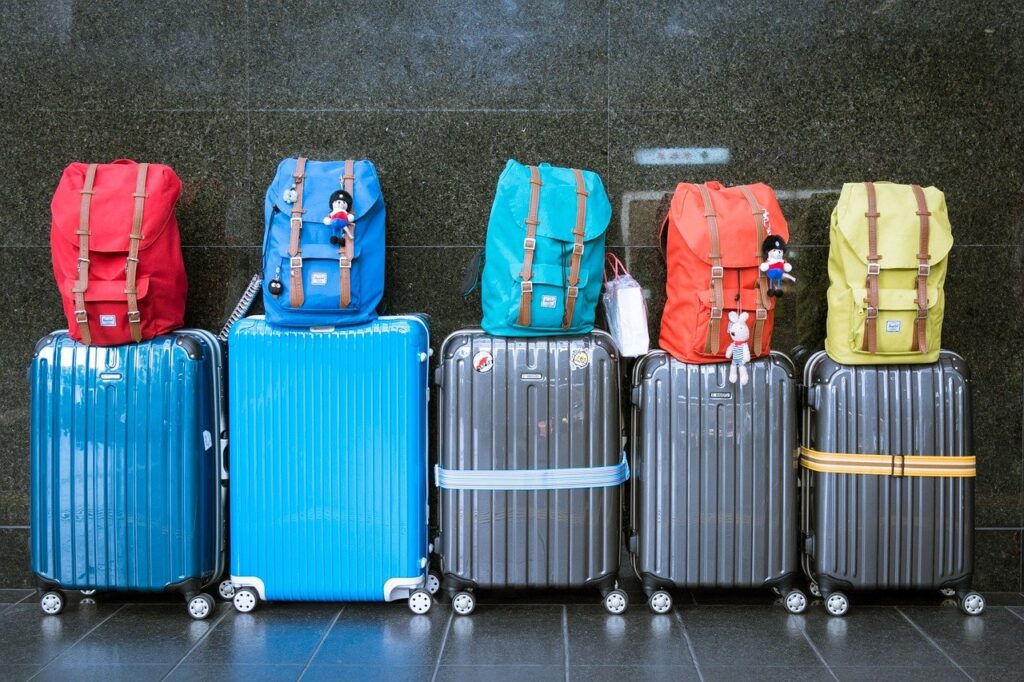
(Photo Credit: tookapic from Pixabay)
8. Pack for Less, Not More
We had this issue and let me tell you, dragging six full-size bags down a mile-long airport terminal is not the way to go. You will regret it. In several countries, traveling with six bags will require you to pay extra for private transport versus simply jumping in a taxi or Uber. Only pack what you know you can’t get in your new country and items you know you’ll need. This may include clothing or even your favorite pots and pans.
Pro Tip: Check out the product delivery options in your new country in case you are unable to take some essential items on the plane. When looking at delivery options, you should also review the shipping time, and import fees, and be aware of the items that cannot be shipped.

(Photo Credit: bridgesward from Pixabay)
9. Don’t Forget to Arrange a Proper Goodbye
You can’t leave on your amazing new journey without saying goodbye to family and friends. I’m sure you’ve told them of your plans. They’ve watched you sell your home, and pack your bags, but it’s probably still a shock to some. Throw a party if you want to! Remember… this is a celebration and treat it as such. It also allows everyone to say a proper goodbye and for family and friends to plan a visit soon once you’re settled in your new home.
Pro Tip: Add a communication app to your phone – such as WhatsApp or Signal – and have your family and friends do the same. Keep the connection strong while you’re living or traveling abroad.
Want to know more about living abroad and expat life? Vacationers can get inspired and learn more from firsthand experiences of LGBTQ+ Americans currently living in Mexico, Canada, Spain, and Portugal. Plan your move abroad with a pre-move checklist and check out a list of the best places to go if you’re a queer digital nomad or gay retiree.
Also, check out our candid interview with a gay couple who moved from Washington, DC to Medellín, Colombia, and an LA Zoomer offers her personal perspective on moving to Australia!

